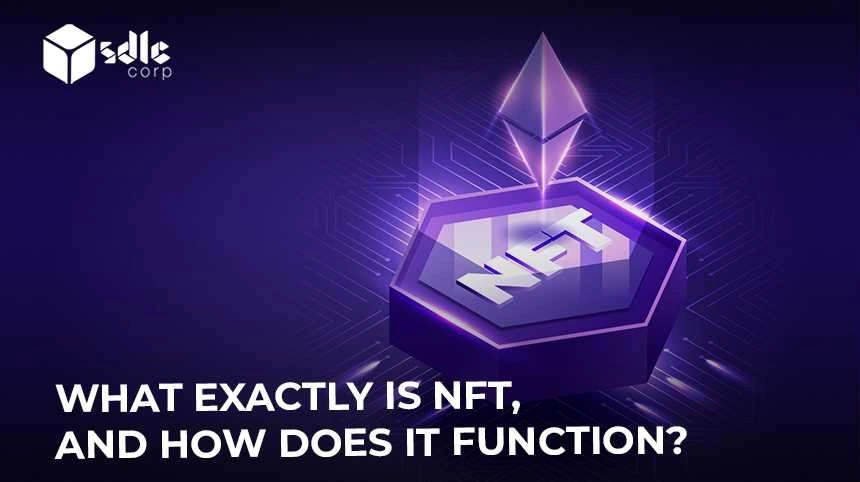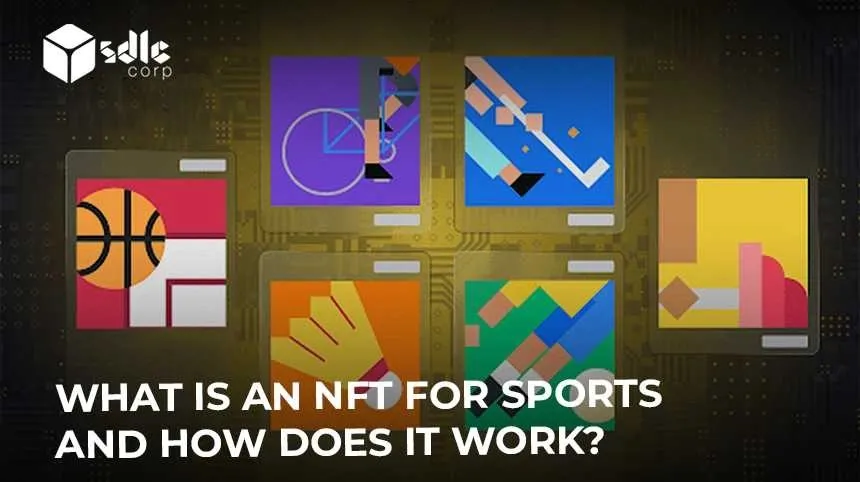Blockchain and NFTs in Logistics Industry: As a result of the blockchain technology’s ability to record transactions between parties in a permanent and secure manner, it has several uses in the industry.
One of the most exciting things about blockchain is how adaptable it is. Companies can use it to fit their own needs.
Many blockchain logistics startups are among those exploring the potential of blockchain beyond the realm of digital exchange.
Companies like Google, Microsoft, and Amazon, among many others, are using or offering some kind of blockchain technology.
The blockchain supply chain market is expected to grow from $145 million in 2018 to $3.3 billion in 2023, per research from Markets and Markets. Also Blockchain and NFTs technology is playing vital role in Marketing Industry.
Domino’s has announced that it will use blockchain logistics solutions in Singapore and Malaysia.
Malaysia and Singapore are home to nearly 4,000 Domino’s Pizza employees across 260 locations.
Benefits of Blockchain In Logistics Industry
Because of the several apparent advantages that blockchain may offer to the logistics business, an increasing number of organizations are implementing the technology.
Gartner did a survey in 2018 and found that only 1% of chief information officers (CIOs) have bought and used it, while 23% are seriously thinking about or interested in using it.
Due to the lack of transparency that currently exists in the transportation business,
it may be difficult for customers and purchasers to get an accurate estimation of the value of an item.
When there is ambiguity about whether certain behaviors are illegal or immoral, analyzing supply chains becomes extremely difficult.
Revolutionize Logistics: Explore Blockchain and NFTs Now!

Validity
It is impossible for a single computer to make a mistake in the verification process since each new block record must be authorized by all of the computers that are connected to the network.
The Process of Tracking and Tracing
The history of the blockchain can be followed all the way back to the beginning of time due to the fact that all participants have access to and can verify the timestamps of every block on the blockchain.
With this method, you can keep information like financial documents that might be needed for an audit.
Security Guaranteed for All of the Data
Because its digital ledgers are spread out across the network and duplicated on each device in the network, blockchain is very resistant to the kinds of technical problems that could cause data to be lost or changed.
Accessibility
Because it can be used to record any information that you want to keep secure while also keeping it easily accessible, blockchain has an inherent flexibility that makes it applicable to a wide variety of fields.
Blockchain can be used to record anything you want to keep secure while also keeping it easily accessible.
How to Implement Blockchain in Logistics
Many companies throughout the world have begun researching blockchain’s uses.
Why hasn’t every industry adopted blockchain if it’s so revolutionary?
Progress isn’t rapid. The internet gradually displaced private networks, and public blockchains are expected to do the same.
The logistics industry must educate itself before digitizing, standardizing, and cleansing data.
When this industry-wide standard is approved, companies will need a supply chain ecosystem to apply it in a public blockchain environment.
Even though it’s a well-known business, shipping and logistics might be among the first to utilize blockchain.
NFT in Logistics Industry
There have been a few non-traditional ways to manage logistics and supply chains in the past few years.
It is correct to say that NFT provides us the ability to see the metadata of a variety of different items.
The information about the NFT token that is called “metadata” can include, but is not limited to, details like who owns it, where it is stored, and its weight, size, etc.
The NFT is maintained on the token network for the logistics blockchain token, where it receives frequent updates with newly gathered data.
When the item gets to where it will be used, a complete and reliable record of its whole journey from where it came from to where it will be used will have been made.
The Benefits of NFTs in Logistics Include
1. Comprehensive documentation of where everything came from.
2. Increased responsibility.
3. Greater safety for sensitive data.
Optimize Operations: Discover How Blockchain and NFTs Are Reshaping Logistics!

Implementing NFTs for Logistics Along the Supply Chain
The lack of traceability in the supply chain is the most important problem, and it may be the reason why a lot of stock goes missing every year.
Because the supply chain is essentially a series of product exchanges, it is also called the distribution chain.
If we use an NFT to represent these things and then exchange the token for the good that it represents, we will be able to know, at any given time, who is currently in control of that commodity.
As we have seen in the past, in order for this to work, a contract must be established between the actors.
You should be unable to transmit NFTs if the counterparty does not agree to accept them, just as you will not be able to give away the goods if the NFTs have not been received.
If the other person doesn’t agree to take them, you shouldn’t be able to send NFTs either.
Stay Ahead of the Curve: Harness the Power of Blockchain and NFTs in Logistics!

Explore our other insights!

Role of Blockchain in Poker Game
Blockchain in Poker Game depends on trust around fairness, balances, and payouts. Therefore, players must believe cards are

What Exactly is NFT, And How Does It Function?
Imagine purchasing a digital painting on the internet at a reasonable price and receiving a unique digital token

What is an NFT for Sports and How Does It Work?
The emergence of Non-Fungible Tokens (NFTs) has revolutionized several industries, with the sports sector being one of the
FAQ's
1. How might blockchain technology be used in logistics?
Blockchain facilitates transparent interaction across highly interconnected industrial networks. The level of trust, safety, and efficiency is increased. It can also be used to make sites where logistics service providers can post real-time ads for empty spots on their trucks and ships.
2. Can blockchain technology be put to use in supply chain management?
Blockchain technology could help logistics companies run better by keeping track of where each shipping container has been and how it got there.
3. How is blockchain affecting the logistics industry?
The logistics industry is predicted to undergo a dramatic shift due to blockchain technology. By fostering trust among all parties involved, it will streamline the verification of transactions and facilitate the distribution of products and services. Implementing this strategy in logistics may take a long time.
4. What does NFT mean in the world of logistics?
NFTs, or non-fungible tokens, have proven useful across many industries. It is impossible to sell or trade non-fungible tickets on a blockchain (electronic digital ledger). The topic of this issue, “Applying NFTs to SCM,” is creating quite a stir in the logistics and supply chain communities at large.



